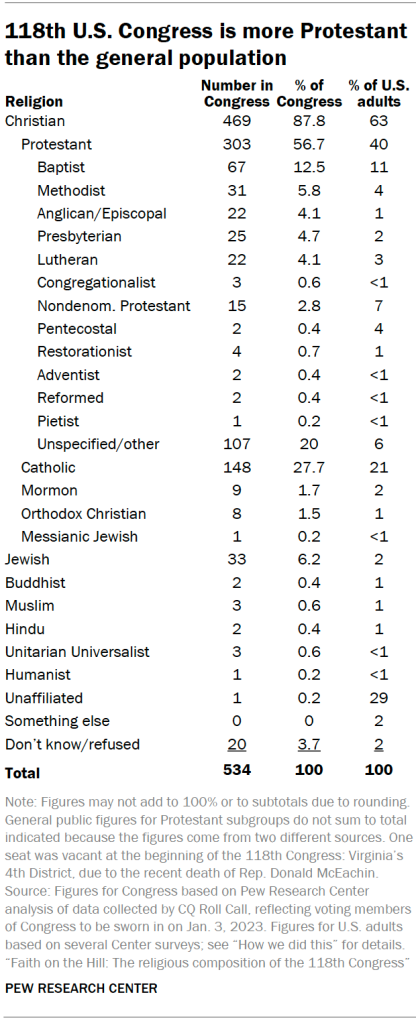Religion in the 118th Congress
Jeff Diamant at Pew:
As it begins its 118th session, the U.S. Congress remains largely untouched by two trends that have long marked religious life in the United States: a decades-long decline in the share of Americans who identify as Christian, and a corresponding increase in the percentage who say they have no religious affiliation.
Since 2007, the share of Christians in the general population has dropped from 78% to its present level of 63%. Nearly three-in-ten U.S. adults now say they are religiously unaffiliated, describing themselves as atheist, agnostic or “nothing in particular,” up from 16% who did not identify with a religion 16 years ago. But Christians make up 88% of the voting members of the new 118th Congress being sworn in on Jan. 3 – only a few percentage points lower than the Christian share of Congress in the late 1970s. In the 96th Congress, which was in session in 1979-1980, 91% of members of Congress identified as Christian.
Just like in recent sessions, only one member of the new Congress – Sen. Kyrsten Sinema, independent of Arizona – identifies as religiously unaffiliated. Another (Democratic Rep. Jared Huffman of California) describes himself as humanist, and 20 are categorized as having unknown religious affiliations. Most of these members declined to state a religious affiliation when they were asked by CQ Roll Call, which serves as the primary data source for this analysis.

